The acting is uniformly excellent with a number of characters playing multiple parts. Niall McGinty as Guy Montag literally sears the stage. His is a complex and nuanced performance. Guy holds so much inside that we wonder why he doesn't explode. Eventually, he does. Inside-out acting at its finest. You just can't take your eyes off Niall's performance for fear you'll miss the heart, guts, and blood ready to burst out from beneath Montag's cocoon.
Alexandra Rose Horton is mesmerizing in her role as Clarisse. Speaking of Harry Potter, she reminded me a bit of Luna Lovegood. She projects an instant dottiness to Montag, a free spirit of sorts. One might say she's naive when, in fact, she's the entirely opposite. That's an easy description to read, but just try acting it. Horton is as natural on the stage as the proverbial ghost light. No respectable theatre survives without one.
Katelyn Crall as Mildred understands something about playing addiction that most actors don't get. See, drunk people in reality are trying not to act drunk. Katelyn doesn't play, "Look how messed up I am," she plays the intention and the moment. She plays the truth of the character. Her Mildred (Montag's strung-out blank wife), when not asleep on pills, is awake on pills. She drinks too. But most certainly her addiction is to a kind of facile imitation of lost pleasures: TV. In this dystopian future, it's probably no coincidence that the TV is, for all practical purposes, the wall. She stares at the wall and basks in television shows that call you by name and include you in their enchanting soap operas, sans conflict, sans sense, sans knowledge, sans teeth, sans anything. And no doubt she'd like to spend her waking hours with her vacuous neighbor friends surrounded by three, no FOUR! walls of TV, imprisoned in dazzling hypnosis where no effort is required to be entertained, nay, occupied. Think of shrimp frozen in place at the spectacular wonder of a flashlight. Then comes the net. Montag's version of the Enlightenment disturbs her TV. She turns him in.
At this point in the review, I would like to remind you that Honey Boo Boo was aired on the Learning Channel, and Ancient Aliens aired on the History Channel. Really.
Speaking of the neighbors, we have Alice and Helen as portrayed by Jacqueline St. Pierre and Roxanne Fay. They're a pair of ducks. They waddle over to Montag & Mildred's place and eat corn together. The TV show knows who's watching and it calls them by name too; in that robotic way, the same way the children are welcomed at Kamp Krusty:
St. Pierre and Fay play this pair perfectly, like proper church ladies looking longingly at a martini. They take umbrage with Montag's emergence into the light. TV always looks better in the dark. And sure, they stand up for Mildred's commitment to the shallow false pleasures of comfortable numbness, but they're quick to retreat at the sheer terror of Montag reading to them Matthew Arnold's Dover Beach from a book of poetry; one woman reacts with tears, the other with anger. See, this is what poetry does! It gives emotion. We don't want that. We want algae! We want corn!
They're shrimp. They're superficial. Shrimpducks.
In counterpart, we have Black and Holden played respectively by Jay Nixon and Jack McKenny. These are the enforcers. They buy it all. Burn books. That's their job. They play cards. They do as they're told. They might be the scariest characters in the story because there's no arc to them. It's over. This is who they are. They'll not go deep about it.
Both characters are superbly played by their actors. What I've described of Black and Holden may seem flat, but Nixon and McKenny are no less interesting to watch than any other of the characters. They're all in, 100% invested in the roles. They move with certainty. Their voices are strong and loud. They exude confidence. They scare the shit out of you.
Mrs. Hudson is the stunning character I'll never forget in this production. She's played by Roxanne Fay in a double cast, and one would not imagine it's the same actor who played Helen. Far older and different, Mrs. Hudson hordes her beloved books. When the firefighters find their way into her home having heard of her valuable collection, it's as if she expects them and welcomes them. Almost as if she's proud to have finally earned their attention. But by God, she will not let them burn her books before she burns them herself. It's an act of martyrdom. It is she who lights the match. It's the first time we see any of the firemen blink. She robs them of their power and authority. As the fire consumes her it's as if she smiles. Like Mona Lisa. Absolutely chilling. Counterpoint to this, the enigmatic Captain Beatty burns, screaming on his knees. But we'll get to him in a moment.
In his effort to understand why he's comatose, Montag solicits a former English professor who lives with regret. Read about the guilt many Germans felt when they saw a tsunami coming and did not speak out. Think about the current wave headed our way, and the guilt we will feel if we don't speak out right now. History does nothing if not repeat itself. We know this from books.
Professor Faber knows this. Played by David Carey Foster, Faber is reluctant at first to teach Montag anything about books. As things go, he realizes--not only can Montag learn, he can be something like Faber's younger faster stronger avatar. He wires Montag up with a two-way secret radio device and like Cyrano speaking through Christian, Faber finds his faculty. This character arc is beautifully realized by Foster. He's able to show the reluctance and trepidation, then the gradual confidence, and finally an almost cathartic scene-chewing thrill that his actions will finally be given meaning. But pop-goes-the-weasel, Captain Beatty discovers Montag's earpiece and through it, gives Professor Faber a hard lesson in heartbreak.
Ah, Captain Beatty. He begins as a hardass. Books are to be burned, and he's the chief burner. Come to discover, there's a reason. That, I won't spoil for you. But I will tell you this: As Beatty, David Patrick Ford puts on a master class in acting for the stage. You'll not see a more powerful performance than his any time soon. I've read other reviews for other productions of this play in which the extended monologues of this character were savaged. They blamed the "self-indulgent" script, largely penned by Ray Bradbury himself. The critics are wrong. It was the actors who were not up to the challenge of Ray Bradbury's dialogue. The fire has to burn inside the actor to give it life. It's that simple. And Ford kills! His performance as Captain Beatty may be among the few finest performances ever to grace the stage of the Hippodrome. He earns every drop of emotional content he wrangles out of the audience. Watching Ford and McGinty go at it in this production makes U.F. football look like tiddlywinks. Yeah, I said it. They'll burn me for it. So be it. Truth.
As for the production, the technical requirements of this play are mind-blowing. From Bob Robins' magnificent lighting to the brilliant projection design of FIVE OHM, the outstanding costume designs by Amanda Jones, scenic design by Mihai Ciupe, insane props by Elaine Shoaf, technical direction by Warren Goodwin, combat direction by Tiza Garland, lead electrician Bill Boothman, dialect and voice coach Susan Schuld, the work of these behind-the-scenes artists checks every box Aristotle ever came up with, and possibly a few he could have never imagined. And they are seamless and awe-inspiring.
Especially deserving of recognition is the outstanding original score by Jing Zhao and the exquisite sound design by the fabulous Amanda Nipper. The sound design and music are the heartbeat of this play. Unusual to most plays, there is something in the sonic field from the very beginning of the show until the very last moments. Never intruding upon the actors but always present, ratcheting up the tension in such sublime subversive fashion, the sound design is very much its own character. In the production, it plays The Mind.
See this play because Ray Bradbury adapted the stage play from his own novel. See this play because the actors and production are top-notch. See this play because it's the warning before the wave, and you can help. Don't be a duckshrimp. Love conquers fear if you want it to. Theatre is the love you're looking for. See this play to nourish and inspire the fire of your mind and then talk about it civilly with folks you don't agree with. If any references in this review were obscure or unknown, read up on 'em.
Here's where to get tickets. The HIPP has wisely extended the run. To the Hippodrome: welcome back! If Fahrenheit 451 is any indication, this is going to be a great season!
-- Tom Miller
TICKETS: https://thehipp.org/fahrenheit-451/
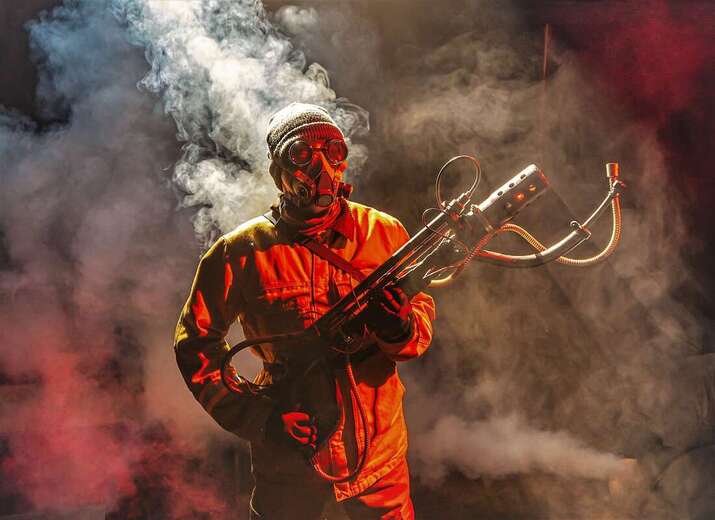
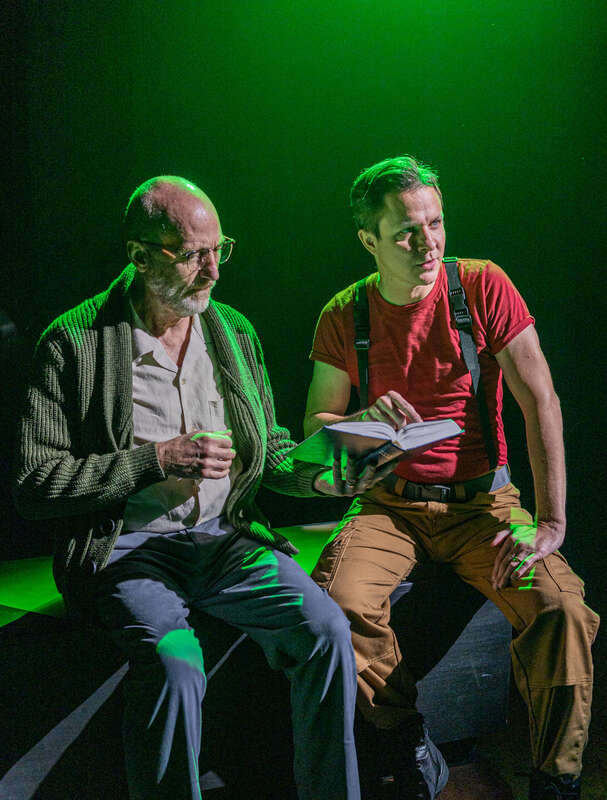
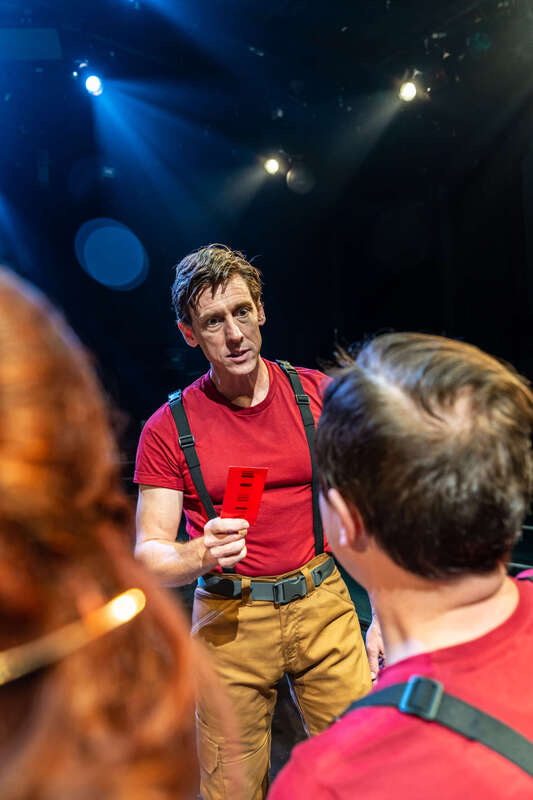
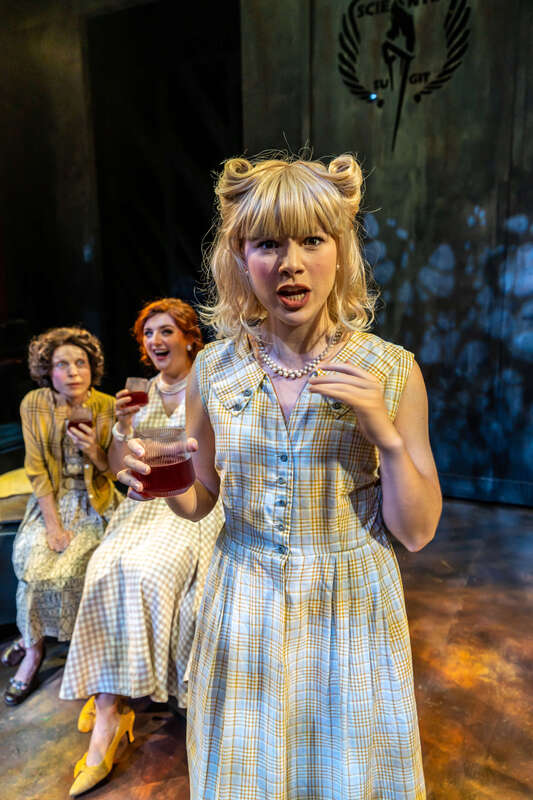
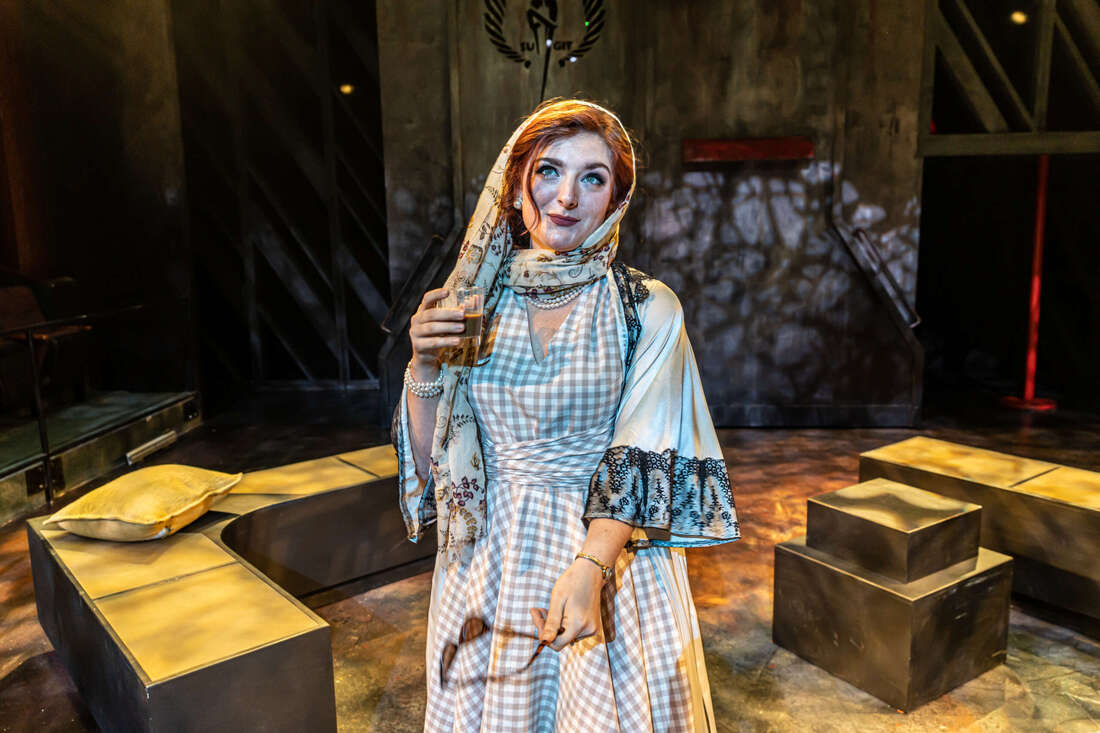
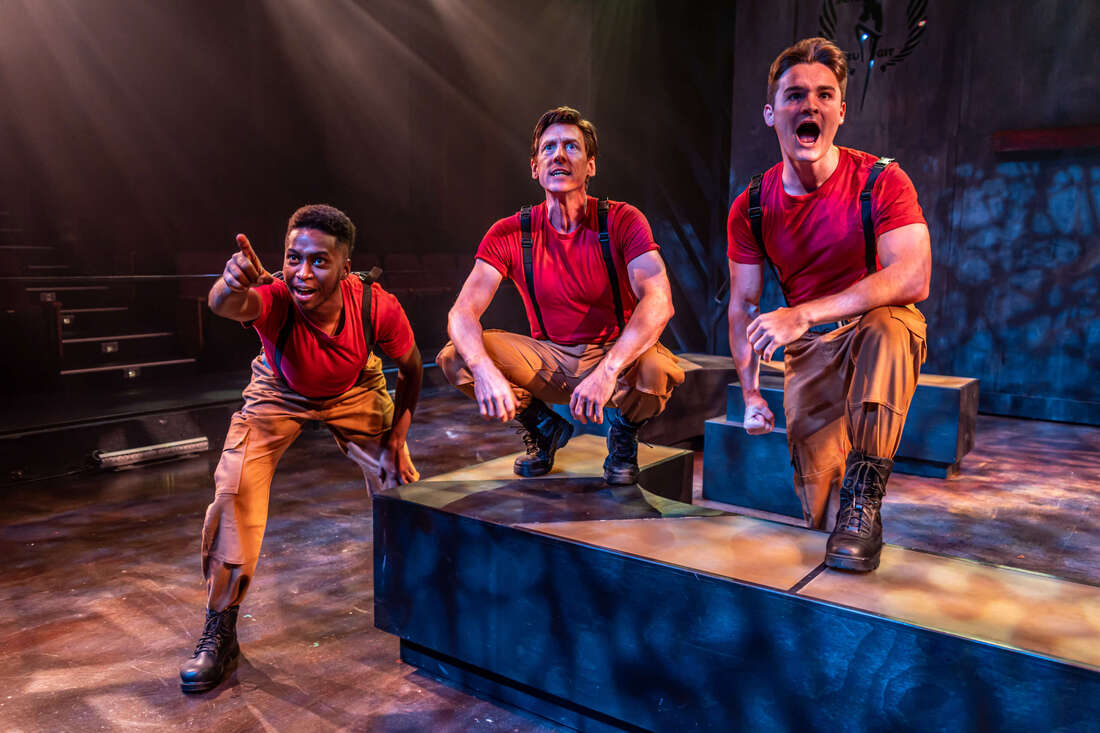
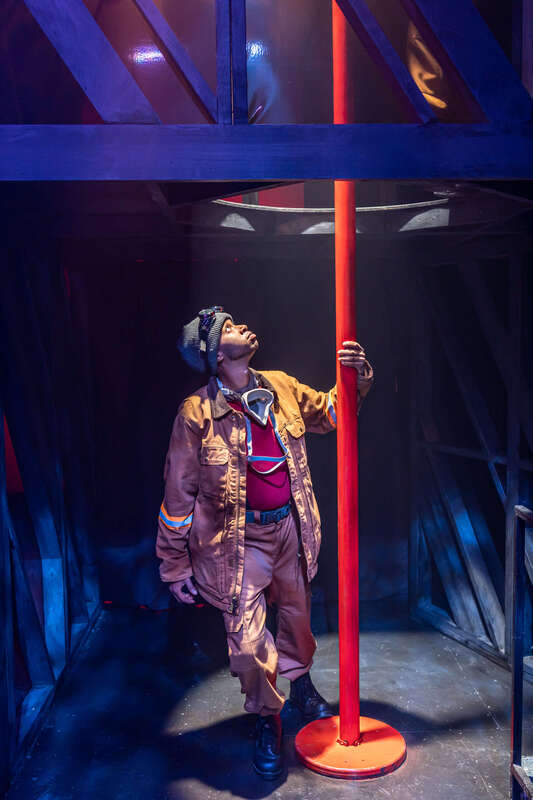
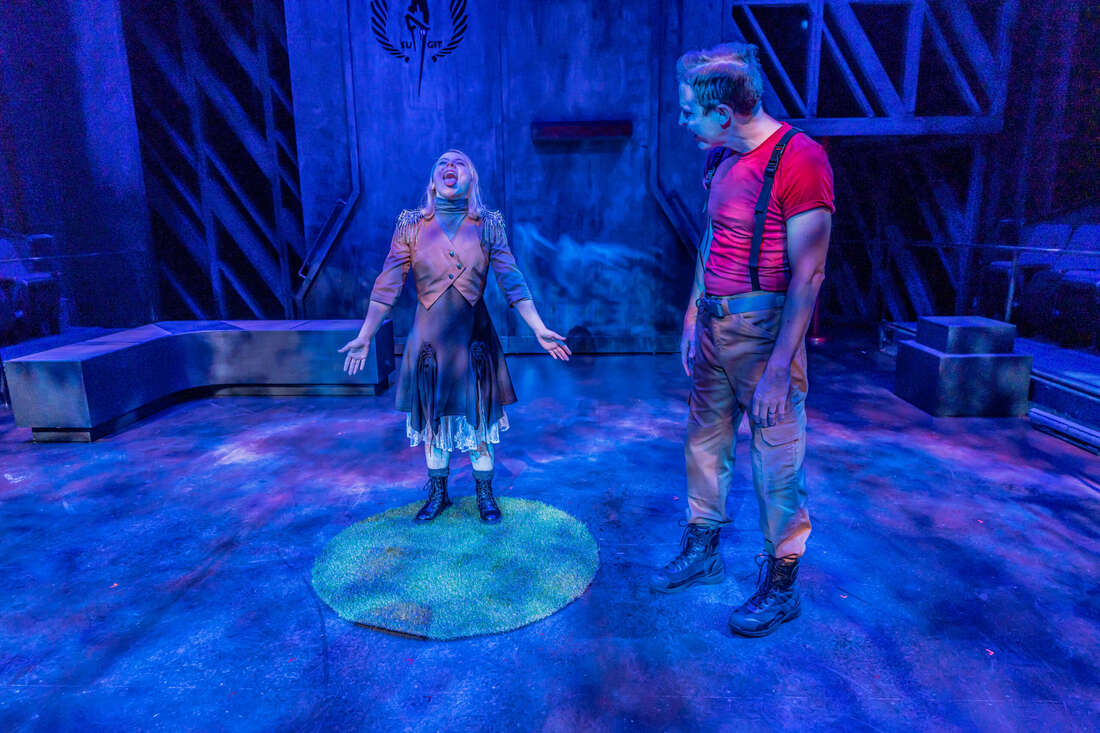
 RSS Feed
RSS Feed
